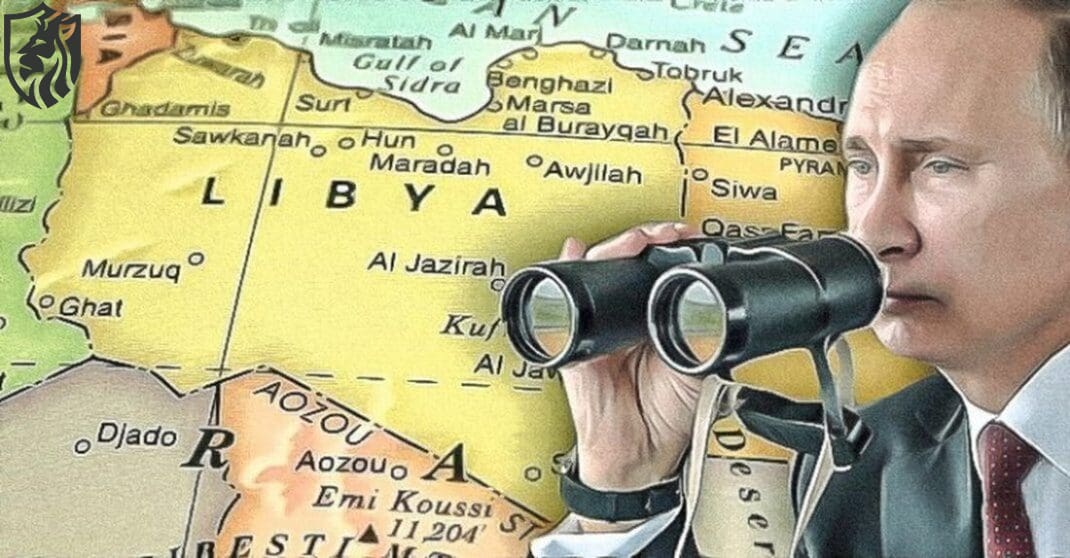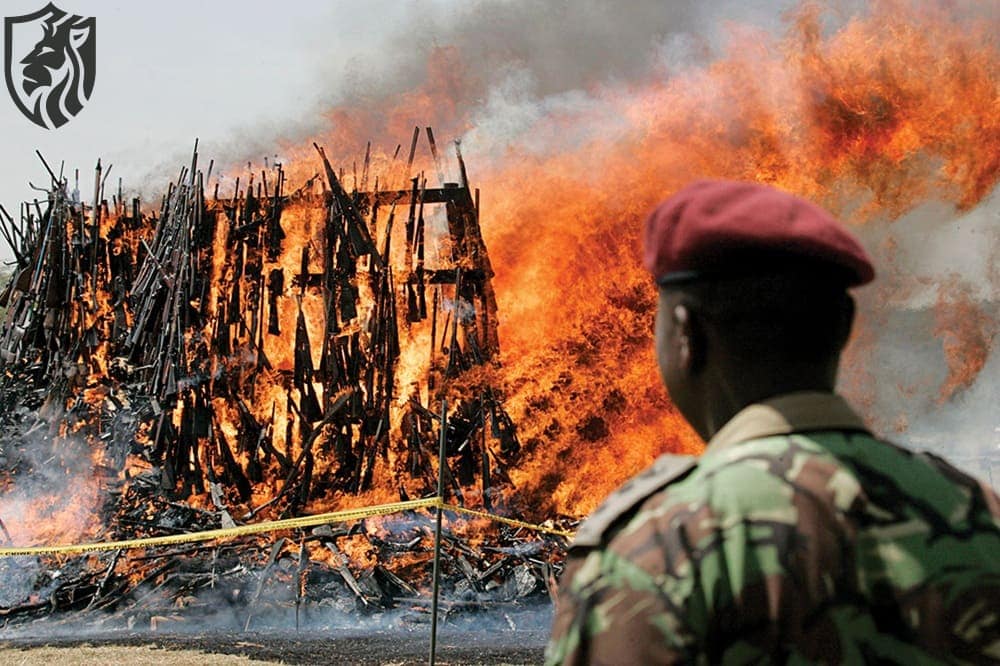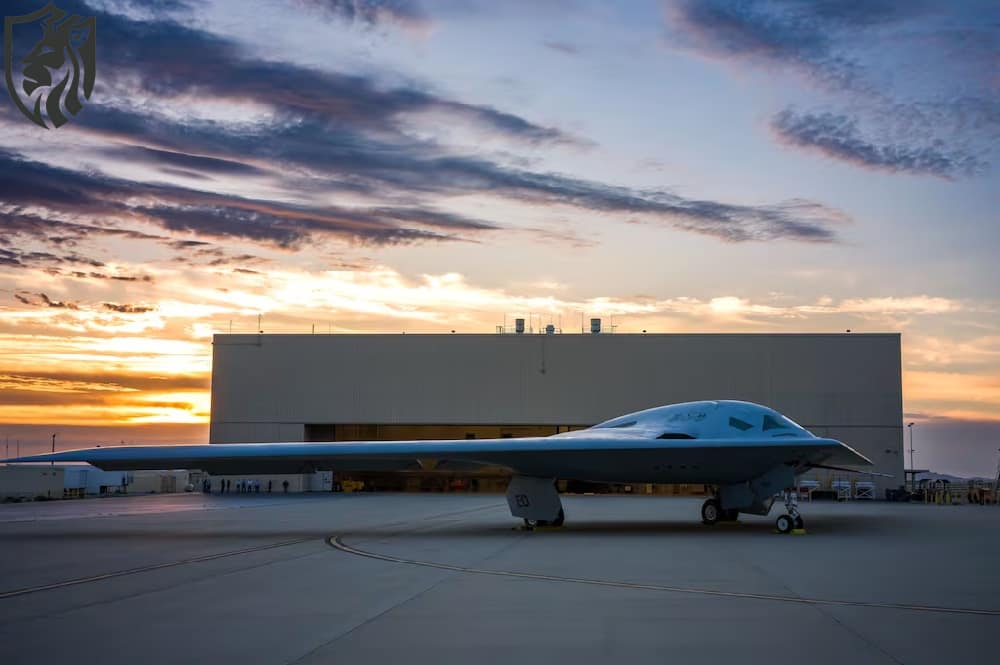
Russia in Libya
Following the ousting of Syrian tyrant Bashar al-Assad in December 2024, Russia has hastily relocated military assets to other regions, including eastern Libya. Experts scrutinize Russia’s long-term geopolitical objectives and express concerns that the increased deployment of mercenaries and military personnel may exacerbate instability in Libya, Sudan, and other regional nations.
The Kremlin has increasingly used the Al-Khadim airbase, located around 100 kilometers east of Benghazi, as a central hub for executing operations, supplying armaments, and trafficking resources in and out of the tumultuous Sahel region.
Researcher Andrew McGregor of the Jamestown Foundation articulated in an analysis dated April 17 that one of former Libyan leader Mu’ammar Qaddafi’s most significant foreign policy failures was his endeavor in the 1980s to utilize his Soviet-equipped military to extend Libyan dominion and influence in the African Sahel region.
“Currently, Russia is concentrating on a comparable initiative in the Sahel, utilizing the same remote airbase in southeastern Libya that Qaddafi employed to initiate his offensive in adjacent Chad.”

Several news outlets have tracked Russian military movements from Syria to Libya using satellite images, radar data, and flight logs. In May, an Antonov-124 cargo plane departed Syria and began a nearly 10,000 km journey toward Sub-Saharan Africa.
First, the aircraft landed at Al-Khadim in Libya, then continued to Bamako in Mali and Ouagadougou in Burkina Faso. Radio France International (RFI) verified these movements through detailed analysis of public flight logs and tracking data.
Although the exact cargo remains unclear, the Antonov-124 can easily carry multiple vehicles or even military aircraft. Moreover, reports indicate Russian cargo planes have delivered helicopters, radar units, and missile systems to Mali, Niger, and Burkina Faso. Meanwhile, Russian mercenaries on the ground support military juntas in these countries to help them maintain control and power.
From December 2024 to January 2025, the French publication Le Monde reported on eight flights from Syria to Al-Khadim. RFI examined multiple Telegram channels associated with Russian paramilitary organizations and identified mentions of Russian arms shipments to Al Khadim encompassing heavy weaponry and armored vehicles—identical to those utilized by Russia in Syria.
A video message stated, “New organizations.” Innovative technology. Ancient locations. “Recall your origins!” Moscow’s fluctuating relations with Libya precede the Cold War. RFI reports that they recorded the film at Al-Khadim.
Russian Wagner PMC at it Again
Lou Osborn, representing the All Eyes On Wagner investigative group, stated that Russia’s involvement at Al-Khadim results from an initiative to strengthen relations with Field Marshal Khalifa Haftar, the leader of the Libyan National Army (LNA), who has governed eastern Libya since 2017.
“We observed a logistical ballet of Russian aircraft en route to Libya,” Osborn informed RFI. “A significant political and military rapprochement exists between Haftar’s Libya and the Kremlin.”
Moscow has sought to establish relations with the officially recognized administration in Tripoli by building embassies; it has made similar efforts in Algeria and Tunisia. According to Osborn, these nations are acutely cognisant of regional developments, with military attachés, especially Algerians, frequently travelling to and from Libya.
Russia’s involvement in Libya extends beyond Al-Khadim. In December 2024, Russia redeployed forces from Syria to reactivate the Matan al-Sarra air facility adjacent to the borders of Chad and Sudan, as reported by the Italian news agency Nova. The base has remained unoccupied since 2011.

Anas El Gomati, director of the Sadeq Institute, stressed that Russia’s Syria withdrawal reflects a broader regional realignment. During an interview with The New Arab, he noted that Matan al-Sarra is more than just an airbase renovation.
Instead, it highlights Russia’s shift in strategy as it actively expands its military footprint across Africa. Moreover, the timing matters: Russia is pulling back from Syria while rapidly advancing work at Matan al-Sarra.
This site, near the borders of Chad and Sudan, holds immense strategic value for Moscow’s growing African ambitions. Importantly, Russia does not aim to replace Syria; rather, it seeks broader influence from the Mediterranean deep into Africa.
Consequently, Matan al-Sarra allows Moscow to directly supply arms and equipment to Burkina Faso, Mali, and Sudan. Russian personnel have already repaired runways and storage buildings, ensuring the base is fully operational.
Meanwhile, Haftar’s LNA controls the surrounding region and protects supply routes to Sudan from the port of Tobruk. However, not all Libyans support Russia’s moves. Some fear increased foreign interference could deepen the nation’s instability.
For example, Tripoli’s Prime Minister Abdul Hamid Dabaiba firmly opposes turning Libya into a stage for great power conflict. He also warned that Russian arms could worsen the country’s fragile political and security situation.
Clearly, Dabaiba’s remarks reflect a growing concern in Libya about outside actors fueling internal divisions.
Conclusion
Dabaiba stated to The Guardian, “No individual possessing even a modicum of patriotism desires a foreign power to exert its hegemony and authority over the nation and its populace.”
Jalel Harchaoui, an associate fellow at the defense think tank RUSI, described Dabaiba’s comments as a “watershed moment.”
“His utterance of those words poses significant issues for Russia, as a fundamental aspect of the Russian doctrine in the Middle East is to avoid being perceived as unequivocally aligned with one side against the other,” Harchaoui informed The Guardian. Russia was expected to play a key role in the Libyan crisis, but that is no longer the case.
References
- Jamestown Foundation – Andrew McGregor Analysis: jamestown.org
- Radio France International (RFI)—Russian Flights Tracking: rfi.fr
- Le Monde – Syria to Libya Military Flights Report: lemonde.fr
- The Guardian – Dabaiba’s Statement on Russian Arms: theguardian.com
- The New Arab—Russia’s Strategy in Africa: newarab.com
- Nova News Agency (Italy) – Matan al-Sarra Base Report: agenzianova.com
- All Eyes On Wagner – Investigative Reports: twitter.com/eyesonwagner
- Sadeq Institute—Libyan Think Tank: sadeqinstitute.org
- RUSI – Jalel Harchaoui Commentary: rusi.org








